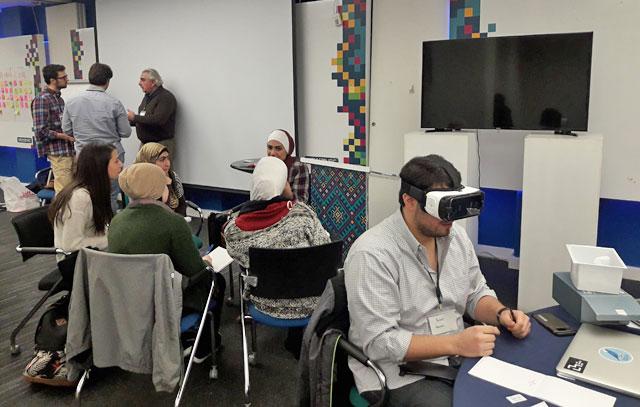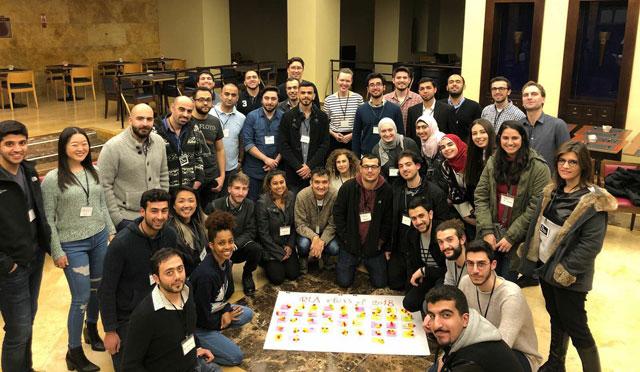You are here
Programme calls on Arab innovators to help refugee children learn
By Camille Dupire - Dec 14,2017 - Last updated at Dec 14,2017
AMMAN — Three Jordanians have concluded the first phase of the Refugee Learning Accelerator (RLA), a six-month programme aimed at helping Arab engineers and computer scientists develop innovative projects benefiting refugees’ learning experiences.
Lasting from October 2017 to April 2018, the accelerator, which is a project of the MIT Media Lab, seeks to support grassroots projects that help refugee youth aged between 15 and 24 years old in their learning process, whether in a formal school system or informally.
According to the latest UNHCR figures, over half of the 1.4 million Syrian refugees in Jordan are less than 25 years old, making education one of the most acute humanitarian priorities.
“We are keenly aware that a lack of educational opportunities is one of primary ‘push’ factors cited by refugees who migrate to Europe. And that, as the war in Syria continues, the crisis around education in the region is only going to become more acute,” the RLA team said in a statement.
In its initial phase, the accelerator called on computer scientists, engineers and designers from the Middle East to draft creative solutions to the problems faced by refugee learners.
While candidates did not have to be refugees to apply to the programme, refugees living inside and outside of the Middle East were encouraged to apply, as long as their projects were oriented towards refugee learning schemes.
“We wanted to provide an opportunity for the people from the region to be involved in designing digital solution to educational problems,” said Genevieve Barrons, the RLA project lead, adding “usually, solutions tend to be parachuted from Western countries and not implemented for a grassroots approach”.
The candidates did not need a concrete idea to be selected. According to the RLA website, they only needed “to show a good mix of technical and design experience, commitment to the issues caused by the Syrian refugee crisis, and a strong interest in the potential of digital tools to change the way that education is provided.”
Out of the 74 teams which applied to the programme, 40 were selected, comprised of two to five people each.
The teams then undertook a six-week online workshop which acquainted them with the current situation of digital education for refugees and provided them with the technical skills needed to develop a prototype project.
“When we conducted conferences or workshops in the region, we [the MIT team] noticed the huge interest of people and students involved. However, we also witnessed the lack of good infrastructure to support them in their projects,” Barrons told The Jordan Times over the phone.
Throughout the six weeks, the teams completed a series of design challenges related to the use of technology in addressing the needs of refugee youth, under the mentorship of experts in the fields of digital education, humanitarian work and technical skills.
“We had a 50 per cent retention rate, which is quite good for an online course. Now, we have selected the 19 teams [42 people in total] who showed the greatest progress in the course to come to Amman to start the second phase of the programme,” the project lead stated.
From January 20 to 26, the 19 teams will start the prototype phase, which will ultimately lead to the incubation process, with the aim of implementing concrete projects with the support of the programme mentors and partners.
Defining itself as an “atypical accelerator”, the RLA seeks to build a community of innovators collaborating to develop technologies that address the regional challenges, with the support of experts from MIT, its website stated.
Related Articles
AMMAN — Innovators from across the region on Sunday convened in Amman to take part in the Refugee Learning Accelerator (RLA), a MIT led incu
AMMAN — A mobile app aimed at bringing together refugee children and volunteers across the globe to share bedtime stories was featured on Fr
AMMAN — If you walked onto the grounds of the World Food Programme’s (WFP) country office in Amman last week, you would have been met with a



















